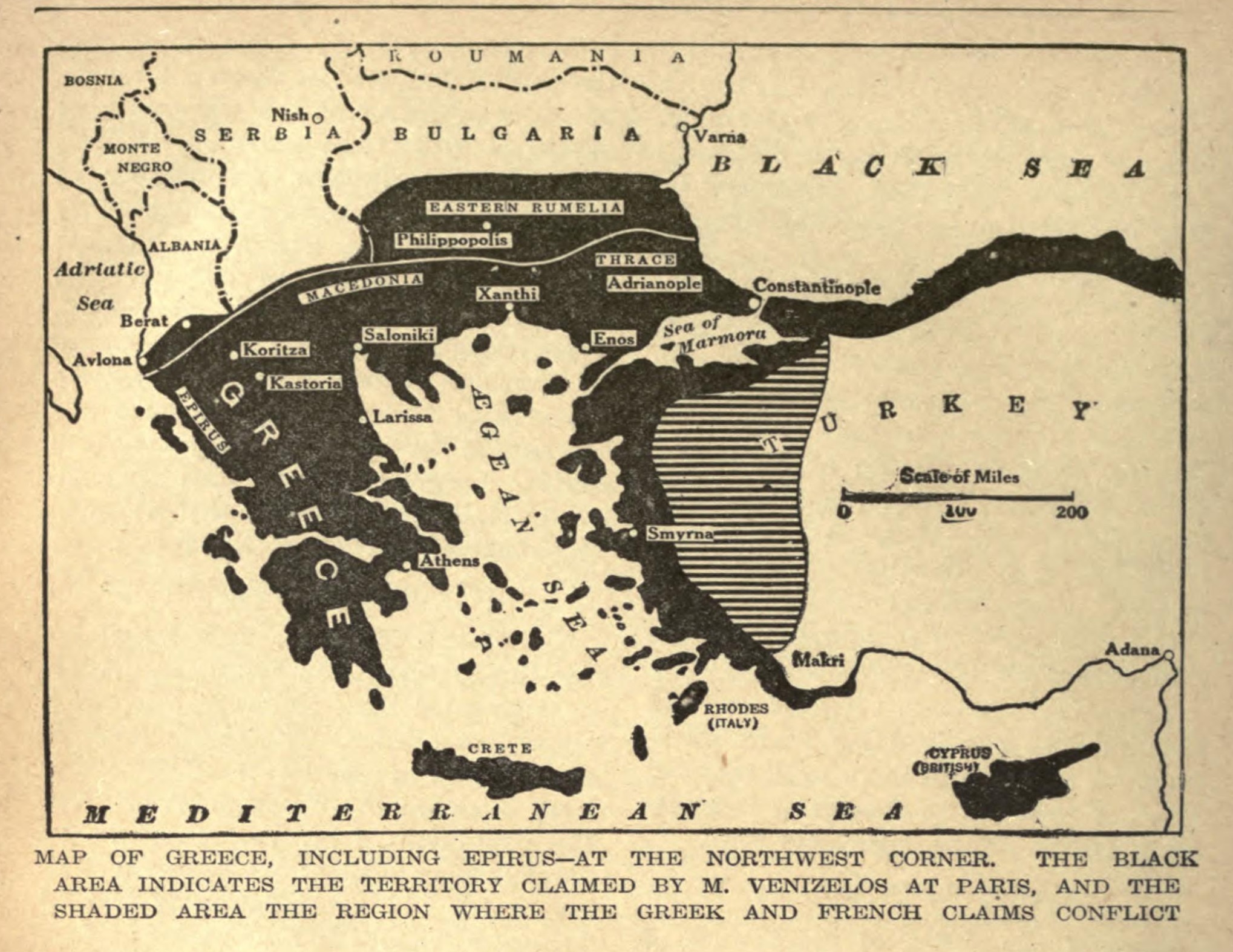|
Çayırbağ
Çayırbağ is a town (''belde'') and municipality in the Afyonkarahisar District, Afyonkarahisar Province, Turkey. Its population is 4,377 (2021). The initial name of the town was Sipsin. In 1960, it was renamed to Çayırbağ. It has four neighborhoods as Fatih, Ali Çetinkaya, Uğur and Huzur. It is far from Afyonkarahisar on the Eskişehir-Afyonkarahisar highway D-665. History The historical development of the town shows parallelism with Afyonkarahisar. The known old history of Afyonkarahisar region dates back to 30000 BC. The region joined the Ottoman Empire in 1429. From 27 March 1921 to 27 August 1922, it was occupied by the Greeks during the Greco-Turkish War (1919–1922). Economy The economy of Çayırbağ is based mainly on agricultur and animal husbandary. Gherkin A pickled cucumber – commonly known as a pickle in the United States, Canada and Australia and a gherkin ( ) in Britain, Ireland, South Africa, and New Zealand – is a usually small or minia ... [...More Info...] [...Related Items...] OR: [Wikipedia] [Google] [Baidu] |
Afyonkarahisar District
Afyonkarahisar District (also known as ''Merkez'', meaning "central") is a district in the Afyonkarahisar Province of Turkey. Its seat is the city Afyonkarahisar. Its occupied an area of , and had a population of 319,574 in 2021. Etymology Afyonkarahisar means "opium black castle" in Turkish. It was named as "Karahisar" meaning black castle ("kara" meaning black and "hisar" meaning castle) in the 13th century CE after the castle overlooking the town. The prefix "afyon" meaning opium was added to the name in 1923 because of the opium production in the region. It is also mentioned by the name Merkez meaning "central" in Turkish. History Early years Human civilization has begun in the Early Bronze Age about 5000 years ago in the region. In 1800 BCE, Hittites occupied the region until the Phrygians populated it from 12th to 6th century BCE. The Hittites built a primitive fort atop the high granite rock overlooking the town of Afyonkarahisar (then known as Hapanuwa). In 333 BC ... [...More Info...] [...Related Items...] OR: [Wikipedia] [Google] [Baidu] |
Belde
Belde (literally "town", also known as ''kasaba'') means "large village with a municipality" in Turkish language, Turkish. All Turkish province centers and district centers have municipalities, but the Villages of Turkey, villages are usually too small to have municipalities. The population in some villages may exceed 2000 and in such villages a small municipality may be established depending on residents' choice. Such villages are called ''belde''. Up to 2014 the number of ''belde'' municipalities was about 1400. On 30 March 2014 by the act no. 6360 all villages (those with and without municipality) were included in the urban fabric of the district municipalities in 30 provinces. Thus ''belde'' municipalities in 30 provinces were abolished. The number of abolished ''belde'' municipalities is 1040. Presently, in 51 provinces, which are not in the scope of the act no 6360, there are still 394 ''belde'' municipalities. See also *2013 Turkish local government reorganisation *Metropo ... [...More Info...] [...Related Items...] OR: [Wikipedia] [Google] [Baidu] |
Afyonkarahisar Province
Afyonkarahisar Province (), often shortened to Afyon Province, is a Provinces of Turkey, province in western Turkey. Its area is 14,016 km2, and its population is 747,555 (2022). The provincial capital is Afyonkarahisar. Adjacent provinces are Kütahya Province, Kütahya to the northwest, Uşak Province, Uşak to the west, Denizli Province, Denizli to the southwest, Burdur Province, Burdur to the south, Isparta Province, Isparta to the southeast, Konya Province, Konya to the east, and Eskişehir Province, Eskişehir to the north. Districts Afyonkarahisar province is divided into 18 Districts of Turkey, districts: * Afyonkarahisar District, Afyonkarahisar * Başmakçı District, Başmakçı * Bayat District, Afyonkarahisar, Bayat * Bolvadin District, Bolvadin * Çay District, Çay * Çobanlar District, Çobanlar * Dazkırı District, Dazkırı * Dinar District, Dinar * Emirdağ District, Emirdağ * Evciler District, Evciler * Hocalar District, Hocalar * İhsaniye District, ... [...More Info...] [...Related Items...] OR: [Wikipedia] [Google] [Baidu] |
Turkey
Turkey, officially the Republic of TĂĽrkiye, is a country mainly located in Anatolia in West Asia, with a relatively small part called East Thrace in Southeast Europe. It borders the Black Sea to the north; Georgia (country), Georgia, Armenia, Azerbaijan, and Iran to the east; Iraq, Syria, and the Mediterranean Sea to the south; and the Aegean Sea, Greece, and Bulgaria to the west. Turkey is home to over 85 million people; most are ethnic Turkish people, Turks, while ethnic Kurds in Turkey, Kurds are the Minorities in Turkey, largest ethnic minority. Officially Secularism in Turkey, a secular state, Turkey has Islam in Turkey, a Muslim-majority population. Ankara is Turkey's capital and second-largest city. Istanbul is its largest city and economic center. Other major cities include Ä°zmir, Bursa, and Antalya. First inhabited by modern humans during the Late Paleolithic, present-day Turkey was home to List of ancient peoples of Anatolia, various ancient peoples. The Hattians ... [...More Info...] [...Related Items...] OR: [Wikipedia] [Google] [Baidu] |
TÜİK
Turkish Statistical Institute (commonly known as TurkStat; or TÜİK) is the Turkish government agency commissioned with producing official statistics on Turkey, its population, resources, economy, society, and culture. It was founded in 1926 and headquartered in Ankara. Formerly named as the State Institute of Statistics (Devlet İstatistik Enstitüsü (DİE)), the institute was renamed as the Turkish Statistical Institute on November 18, 2005. See also * List of Turkish provinces by life expectancy References External linksOfficial website of the institute National statistical services Statistical Organizations established in 1926 Organizations based in Ankara {{Sci-org-stub ... [...More Info...] [...Related Items...] OR: [Wikipedia] [Google] [Baidu] |
Afyonkarahisar
Afyonkarahisar (, 'poppy, opium', ''kara'' 'black', ''hisar'' 'fortress') is a major city in western Turkey. It is the administrative centre of Afyonkarahisar Province and Afyonkarahisar District. Its population is 251,799 (2021). Afyon is in the mountainous countryside inland from the Aegean Sea, Aegean coast, south-west of Ankara along the Akarçay River. In Turkey, Afyonkarahisar stands out as a capital city of hot springs and spas, an important junction of railway, highway and air traffic in West-Turkey, and the place where Turkish War of Independence, independence was won. In addition, Afyonkarahisar is one of Turkey's leading provinces in agriculture, globally renowned for its marble and is the world's largest producer of pharmaceutical opium. In antiquity, the city was called Akroinon and it is the site of Afyonkarahisar Castle, built around 1350 BC. Etymology The name Afyon Kara Hisar literally means ''opium black fortress'' in Turkish language, Turkish, since opium was wi ... [...More Info...] [...Related Items...] OR: [Wikipedia] [Google] [Baidu] |
State Road D
State most commonly refers to: * State (polity), a centralized political organization that regulates law and society within a territory **Sovereign state, a sovereign polity in international law, commonly referred to as a country **Nation state, a state where the majority identify with a single nation (with shared culture or ethnic group) ** Constituent state, a political subdivision of a state ** Federated state, constituent states part of a federation *** U.S. state * State of nature, a concept within philosophy that describes the way humans acted before forming societies or civilizations State may also refer to: Arts, entertainment, and media Literature * '' State Magazine'', a monthly magazine published by the U.S. Department of State * ''The State'' (newspaper), a daily newspaper in Columbia, South Carolina, United States * '' Our State'', a monthly magazine published in North Carolina and formerly called ''The State'' * The State (Larry Niven), a fictional future gover ... [...More Info...] [...Related Items...] OR: [Wikipedia] [Google] [Baidu] |
Ottoman Empire
The Ottoman Empire (), also called the Turkish Empire, was an empire, imperial realm that controlled much of Southeast Europe, West Asia, and North Africa from the 14th to early 20th centuries; it also controlled parts of southeastern Central Europe, between the early 16th and early 18th centuries. The empire emerged from a Anatolian beyliks, ''beylik'', or principality, founded in northwestern Anatolia in by the Turkoman (ethnonym), Turkoman tribal leader Osman I. His successors Ottoman wars in Europe, conquered much of Anatolia and expanded into the Balkans by the mid-14th century, transforming their petty kingdom into a transcontinental empire. The Ottomans ended the Byzantine Empire with the Fall of Constantinople, conquest of Constantinople in 1453 by Mehmed II. With its capital at History of Istanbul#Ottoman Empire, Constantinople (modern-day Istanbul) and control over a significant portion of the Mediterranean Basin, the Ottoman Empire was at the centre of interacti ... [...More Info...] [...Related Items...] OR: [Wikipedia] [Google] [Baidu] |
Greco-Turkish War (1919–1922)
The Greco-Turkish War of 1919–1922 was fought between Greece and the Turkish National Movement during the partitioning of the Ottoman Empire in the aftermath of World War I, between 15 May 1919 and 14 October 1922. This conflict was a part of the Turkish War of Independence. The Greek campaign was launched primarily because the western Allies, particularly British Prime Minister David Lloyd George, had promised Greece territorial gains at the expense of the Ottoman Empire, recently defeated in World War I. Greek claims stemmed from the fact that Western Anatolia had been part of Ancient Greece and the Byzantine Empire before the Turks conquered the area in the 12th–15th centuries. The armed conflict started when the Greek forces landed in Smyrna (now İzmir), on 15 May 1919. They advanced inland and took control of the western and northwestern part of Anatolia, including the cities of Manisa, Balıkesir, Aydın, Kütahya, Bursa, and Eskişehir. Their advance was chec ... [...More Info...] [...Related Items...] OR: [Wikipedia] [Google] [Baidu] |
Pickled Cucumber
A pickled cucumber – commonly known as a pickle in the United States, Canada and Australia and a gherkin ( ) in Britain, Ireland, South Africa, and New Zealand – is a usually small or miniature cucumber that has been Pickling, pickled in a Brine (food), brine, vinegar, or other solution and left to ferment. The fermentation process is executed either by immersing the cucumbers in an acidic solution or through souring by lacto-fermentation. Pickled cucumbers are often part of mixed pickles. Historical origins It is often claimed that pickled cucumbers were first developed for workers building the Great Wall of China, though another hypothesis is that they were first made as early as 2030 BC in the Tigris Valley of Mesopotamia, using cucumbers brought originally from India. According to the New York Food Museum, archaeologists believe ancient Mesopotamians pickled food as far back as 2400 B.C. while, centuries later, cucumbers native to India were being pickled in the Tig ... [...More Info...] [...Related Items...] OR: [Wikipedia] [Google] [Baidu] |
Populated Places In Afyonkarahisar Province
Population is a set of humans or other organisms in a given region or area. Governments conduct a census to quantify the resident population size within a given jurisdiction. The term is also applied to non-human animals, microorganisms, and plants, and has specific uses within such fields as ecology and genetics. Etymology The word ''population'' is derived from the Late Latin ''populatio'' (a people, a multitude), which itself is derived from the Latin word ''populus'' (a people). Use of the term Social sciences In sociology and population geography, population refers to a group of human beings with some predefined feature in common, such as location, race, ethnicity, nationality, or religion. Ecology In ecology, a population is a group of organisms of the same species which inhabit the same geographical area and are capable of interbreeding. The area of a sexual population is the area where interbreeding is possible between any opposite-sex pair within the area ... [...More Info...] [...Related Items...] OR: [Wikipedia] [Google] [Baidu] |





